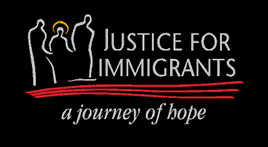
In the vast expanse of human history, civilizations have thrived when connections were made—when bridges, both literal and metaphorical, fostered collaboration, trade, and cultural exchange. Today, as the United States grapples with the intricacies of immigration policy, it’s crucial to remember this legacy. Building bridges, rather than walls, aligns not just with economic or strategic interests but with the profound moral fabric of the nation.
A Nation Rooted in Compassion and Opportunity The Statue of Liberty stands as a testament to America’s foundational ideals: “Give me your tired, your poor, your huddled masses yearning to breathe free.” This beckoning call underscores the U.S.’s role as a sanctuary—a land where dreams are nurtured, and futures are forged.
The Humanitarian Lens: Real Lives, Real Stories Beyond the political jargon and policy debates, immigration is about individuals and families. It’s about parents fleeing violence to safeguard their children, scholars seeking knowledge, and dreamers aspiring for better futures. Each story, from a farmer in Mexico to a tech professional in India, underscores the moral imperative of humane immigration reforms.
Economic Arguments, Moral Foundations While immigration significantly contributes to economic growth, its moral dimensions are paramount. Embracing diversity, upholding human rights, and offering refuge are not just strategic moves; they are emblematic of the nation’s conscience.
The Detriment of Divisive Rhetoric Walls, whether physical or ideological, can create divides that echo for generations. Such barriers not only limit the influx of talent and resources but also propagate mistrust and misunderstanding. In contrast, bridges—policies grounded in empathy and inclusivity—can heal wounds, foster collaboration, and solidify America’s position as a global moral leader.
Toward a Future of Unity and Collaboration Reforming immigration is more than revisiting policies; it’s about reshaping narratives. A bridge-building approach fosters unity, harnesses global potential, and resonates with the core American values of liberty, justice, and opportunity for all.
Concluding Reflections As debates around immigration reform continue, it’s vital to approach them with a moral compass in hand. By building bridges and prioritizing human dignity, the U.S. can craft policies that stand the test of time, echoing the nation’s profound ethos and ensuring a harmonious future for all.
In essence, the call for immigration reform isn’t just a political or economic strategy; it’s a clarion call for compassion, understanding, and the age-old American belief in the power of unity and shared dreams.


